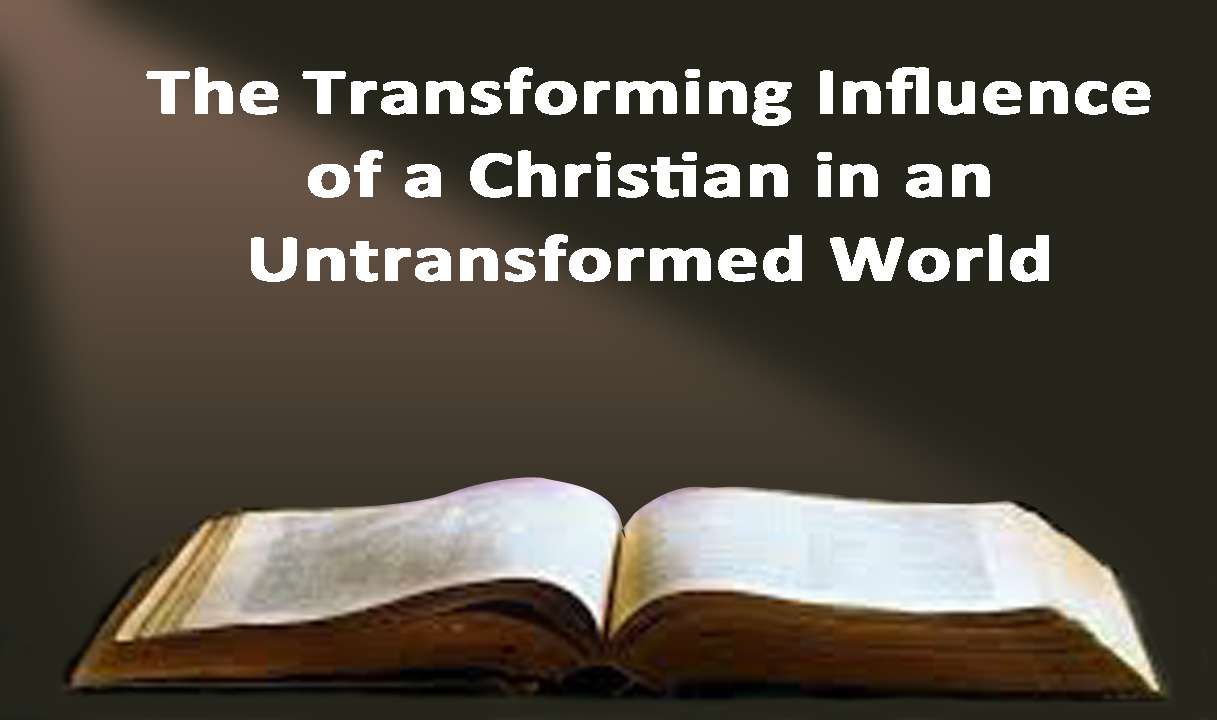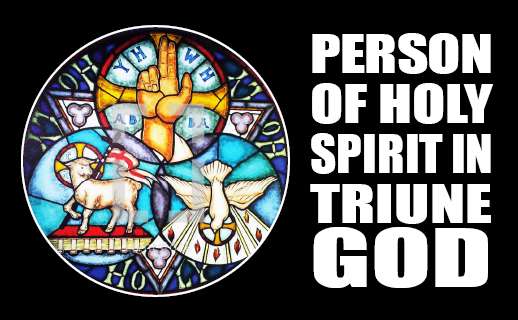

Holiness as the Work of the Holy Spirit: Perspectives in Christian Traditions
Dr. John Alex
Introduction
Holiness is the characteristic nature of God and is the core of His being. Holiness is an attribute of God in the classical Christian theology. “God is Holy” by which we mean that God is transcendent and different from all other beings. God revealed with the adjective the Holy one. However, when it comes to theological implications and its practical side of Christian life, holiness is considered as the work of the Holy Spirit.
The concept of holiness has been lost in the contemporary theology and ethics. A W. Tozer wrote, “We have learned to live with unholiness and have come to look upon it as a natural and expected thing.” What are the implications of attribute of holiness for a believer and how do Christians impart the holiness in the practical Christian life? Church traditions understood the practical side of the holiness of God differently. The first part is the doctrine of Holiness in Christian theology and ethics. The second part explores a key biblical passage related to the doctrine of Holiness in the life of a Christian.
Doctrine of Holiness: A look from Different Church Tradition
The term ‘Sanctify’ means ‘to make holy’. According to the Old Testament, Holiness refers more to certain objects set apart, like vessels, for temple purpose. To be holy is to be set apart and dedicated for the service of God. In the Christian tradition holiness generally refers to an inner process of transformation, through which persons are made pure and holy. The Nicene Creed explains the essential mark of the church as “One, Holy, Catholic and Apostolic.” The teachers of the church considered sanctification as an ever growing process towards perfection. One of the early teachers of faith St. Gregory of Nyssa saw the spiritual life as a race. For him spiritual growth is a never-ending process of striving toward perfection. St. Teresa of Avila saw progress in the spiritual life as a continuous striving toward greater depth and to the core of one’s being, each step loving us closer to a vision of the ultimate.
The transformative process of union with God is well explained in the orthodox understanding of theosis. For Orthodox churches, theosis or deification is more living than doctrinal. The term was coined by Gregory of Nazianzus. Theosis refers to the transformation of believers into the likeness of God. The basic aim of theosis in orthodox understanding is the union with God. God became human that human might become God. Kenneth Paul Wesche explains: “theosis sets forth the evangelical experience of salvation in Christ as a nuptial mystery in which two, God and humanity, become one as bridegroom and bride.” The Holy Life of God is given in Jesus Christ to the believer through the Holy Spirit. Vladimir Lossky writes, “Pentecost which confers the presence of the Holy Spirit and the first fruits of sanctification upon human persons, signifies both the end and final goal, and, at the same time, marks the commencement of the spiritual life.”
The Catholic Church is not giving any specific explanation for the pursuit of holiness. There are varied views which can be categorized into three. (1) Ascetic which focuses on fleeing way from the world, forsaking marriage, secular occupation and it is limited to a few. Holiness is achieved by prayer fasting and self-mortification. (2) Mystical is more of rising from the world than fleeing from the world through various stages such as purgation, illumination and contemplation and ultimately having a close communion with God. (3) Sacramental: In this approach the supernatural holiness is attained through the sacraments. This Holiness is available to all. This Holiness is achieved without any personal struggles.
The Protestant churches approach the doctrine of Holiness from biblical perspectives. There were diverging emphases in biblical interpretation of Holiness. (1) Disciplinary approach emphasis on the ecclesial discipline and the obedience to the commandments of God. The puritans were basically of this approach. (2) Experiential approach developed against the rigid legalistic approach to holiness. Holiness is viewed as an inner life to be cultivated. Quakers and Anabaptist groups followed these approaches to Holiness. (3) Perfectionist approach emphasis on the total holiness and made the doctrine of Holiness as the fulcrum of the Christian life. It was the Wesleyan spirituality made the Holiness as the core of Christian life. The doctrine came to the limelight in the modern times through the teachings of John Wesley.
John Wesley was in the forefront of the Holiness Movement of the 19th century. Wesley held that the road from sin to salvation is one from willful rebellion against the law of God and human beings to perfect love of God and human being. They began to see sanctification as the second work of Grace. For Wesley, there involves two crisis in the process of salvation. The first is the conversion experience in which the person is forgave from the sins s/he has already committed. The second experience is the full salvation; the person is transformed from the causes of his/her sin. For Wesley it was an instant experience received in response to earnest seeking, and by the immediate inner witness of the Holy Spirit. The off roots of Holiness movement at present can be categorized into three – Wesleyan Holiness, Keswick Holiness Movement and Pentecostal Holiness movement.
The Pentecostals differ from the Wesleyans in the understanding of sanctification and the experience of the baptism of the Holy Spirit. Pentecostal Holiness movement related the second blessing of the Wesleyan holiness with the baptism of the Holy Spirit recorded in Acts 2. Pentecostal movement began to see the ‘glossolalia’ (speaking in tongues) as the evidence for the experience of the second blessing. Instead of hairsplitting discussions on the difference between the traditions or the Wesleyan and Pentecostal movement I would like to examine a crucial passage where Paul mentions the role of the Holy Spirit in the believer’s life. Paul gives an explanation of the sanctifying work of the Holy Spirit in Romans 8:1-17. In these sections, Paul is elaborating the contrast between living according to the flesh and living according to the Spirit.
Sanctifying presence of the Holy Spirit in the epistle of Romans
The thrust of Romans chapters 6-8 is sanctification. In chapter 6, Paul argues that holiness is required from those who are justified by faith. Those who died to sin must no longer continue to live in it. Believers who died to sin, have been baptized into Christ, his death and have been planted together in the likeness of his death.
In chapter 7 Paul continues to emphasize the freedom from sin but focuses more on the law. It can be summarized as (1) The jurisdiction of law is over the living (7:1,4) (2) Christians are like that of a wife whose husband had died and she is free from the law of the husband. Similarly through the death the Christians is freed from the law (7:2, 3,4). However in both chapters there are only pale references to the sanctifying activity of Holy Spirit.
In chapter 8 Paul describes the work of the Holy Spirit in relationship to the believer. Paul begins with laying out the contrast between living according to flesh and living according to the Sprit. Paul emphasis here the work of the Holy Spirit in the believers. The victory over sin is sure since it is made possible by the Spirit. The righteous demand of the law can never be fulfilled by flesh but in the power of the Holy Spirit. Walking according to the Spirit, Christians share the result of Christ’s victory and are able to do the demand of the law. (8:1-4). Paul continues to explain the consequences of walking according to flesh and according to spirit. The flesh is hostile to God (Vs 7a), the flesh is incapable of being subject to the law of God (7b) and it cannot please God (vs 8)
The crux of his arguments is seen from verse 9 onwards. Christian life is not lived by one’s own effort. There is no middle ground between walking in the Spirit and walking in the flesh. Life in the spirit is not an occasional spiritual thoughts or it is not a supernatural influence in our behavior. It is the abiding presence of the Holy Spirit which motivates the believer to develop a mindset that is oriented toward spiritual desires.
Being led by the Holy Spirit is not the trademark of a select few but essential for all God’s children. Paul makes clear that holiness is not an occasional event but a daily submission of the believers to the Spirit. The work of the Holy Spirit is not just providing help in decision making rather saving from sin leading a believer into holiness.
The work of the Holy Spirit is involved in our salvation (8:1-2) and holy living (8:3). The spirit initiates, guides and empowers our actions so that we are able to fulfill the righteousness of God (8:9-14). Holy Spirit as the spirit of adoption also assures our son-ship (8:15)
Conclusion
The concept of achieving holiness of God in the life of Christians is portrayed in different ways in the Christian traditions. The biblical portrayal and the traditional Christian understanding are emphasizing one underlying principle to achieve the holiness of God. It is the work of the Holy Spirit which enable the believers to achieve the holiness.
There is a close interrelated relationship between holiness and Holy Spirit. Paul sees the Holy Spirit as the moral force for daily living. We cannot have ‘Spirit without the Holy’ and ‘Holy without the Spirit.’ The Holy Spirit is God’s provision for Holy living in the life of the Christians. Paul affirms that Christians can impart the Holiness of God through the ministry of the Holy Spirit in the life of the Christians and no other means.





